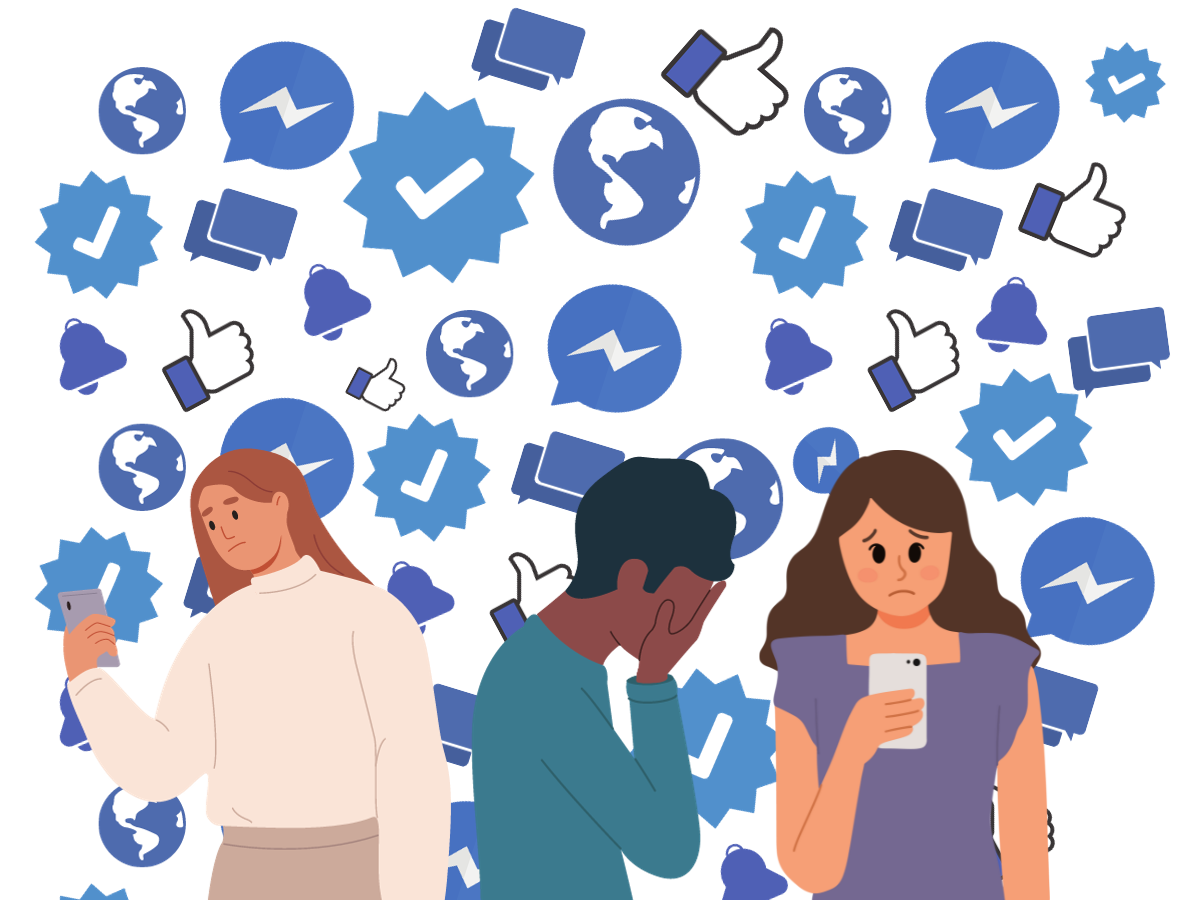From the moment I wake up, past the moment I’m asleep, I am religiously scrolling through Instagram or waiting for a text from my friends. Technology impacts every single aspect of a modern life.
I didn’t have a phone until I was in middle school. My 4-year-old little cousin has been watching kids shows on his iPad since birth.
Kids these days almost come out of the womb knowing how to use an Apple product, but they don’t know how much data social media companies have collected about them. Not even adults do.
I believe media literacy is a non-negotiable skill. It should be taught starting in elementary school, not just in higher education.
Media literacy is a framework to access, analyze, evaluate, create and participate with messages in a variety of forms — from print to video to the Internet, according to Media Literacy Now organization.
One of my professors from my first semester journalism courses was the epitome of speculating about systems of power. Former San José State University professor Halima Kazem-Stojanovic served 15 years as a journalist covering the war in Afghanistan. From this experience she was inclined to always second-guess institutions.
One important thing that opened my eyes about navigating the news was the influence of the media, and how it sells user data after they accept cookies.
Attorney General of California, Rob Bonta, co-led a bipartisan coalition of 33 state attorney generals in filing a federal lawsuit against Meta, formerly known as Facebook, according to his website.
Meta is a social technology company according to its webpage.
Many states have also filed similar actions in state courts, including Florida and Massachusetts, according to Bonta’s website.
Meta’s misconduct includes creating a business model focused on maximizing young users’ time on its platforms, employing manipulative features, publishing misleading reports to show low rates of user harm and refusing to address those harms, according to the same website.
Meta has violated a number of laws, including the Children’s Online Privacy Protection Act (COPPA), a federal law that protects the online privacy of children under 13 years old, according to Bonta’s website.
Frances Haugen anonymously filed complaints with federal law enforcement as a former employee of Facebook in 2021, according to an interview with 60 Minutes.
While working there, Haugen scanned thousands of documents that showed how the company amplifies hate misinformation including conspiracy theories, political unrest and harms teenagers’ body images, especially for girls.
Rhonda Holberton, an associate professor for Digital Media Art at SJSU, said he focuses on teaching the impact of digital media in the world.
When Haugen came out as the Facebook whistleblower, Holberton quickly started incorporating interviews about the vigilante into her own curriculum.
Facebook’s own research shows the extent of harm they have on societies across the world, yet they still hide what they know about the damage they are causing.
The military used Facebook in 2018 to launch a genocide in Myanmar, according to the same 60 Minutes interview.
“I really wanted to ensure that I got student perspectives on this, but also talk about how this affects our experience of the world,” Holberton said.
Though media is a subject of its own, media literacy is interdisciplinary. Holberton may be in the department of Art and Art History, but in my opinion she is right to implement media education no matter what department she may be involved in.
Once youth are educated, they can better use their voice to civically engage with social media issues.
“I was a little concerned that we wouldn’t really see action being taken from our civic representatives,” Holberton said. “Meta wants to kind of absolve themselves of responsibility, they’re not a news platform.”
People care deeply about the mental health of kids and adults, especially parents of Generation Z and Alpha kids who have been noticeably affected by social media platforms.
I have personally struggled with fogs of anxiety and body image, and wonder if I would be happier if my phone didn’t have such a grip on my attention throughout the day.
Meta needs to be held accountable for their actions, but business models as a whole are going to have to change.
“As long as the data that we produce ourselves, about ourselves, is the product, there is going to be an incentive to keep people on the app as long as possible,” Holberton said. “It just so happens that the most psychologically harmful content is the most addicting.”
For example, if you are watching a video of a tiger running towards you, your heart rate will quicken and your brain will respond. But without a physical response, that adrenaline rush is inevitably unhealthy.
Holberton said since there is no healthy bodily output in response to what is happening chemically in a person’s brain when they are using social media, it is terrifyingly addictive.
Magdalini Eirinaki, computer engineering professor and program coordinator for the masters program in artificial intelligence, said there’s very little regulation in the area of social networks.
“Europe is a bit ahead of us, in general, (they) protect the data of the users,” she said. “The US is trailing behind. Something has to be done to bring awareness to the public about what’s going on.”
Eirinaki said nobody knows exactly what goes on in these social networks’ algorithms, because no one discloses the data that these companies are gathering.
She said one reason apps want users to stay as engaged as possible is because they host promoted content, e-commerce and advertisements.
Eirinaki said body image, self-harm and erratic behavior are all subjects that teenagers are more prone to using these apps.
“The problem with this is they create this bubble and this rabbit hole,” Eirinaki said. “In order to keep you engaged they will keep showing you the same type of content.”
Sam Altman, former CEO of OpenAI, testified before Congress in May emphasizing the importance of government intervention in AI, or Artificial Intelligence.
OpenAI is the company that creates ChatGPT and a number of other AI platforms. ChatGPT in particular is an AI that answers questions, and has a free version as well as a more advanced for-pay program according to their website.
“It was clear that was better than the Meta hearings, but it was also kind of disconcerting,”
Holberton said. “We were just letting these things run wild before we have consensus on how we want to ethically use them.”
The extent of what harm has been done to not only children, but to societies around the world.
Meta is exactly the reason why they are paying reparations to ethnic groups in Myanmar, and being sued by a number of federal and state courts.
Holberton said there are some shifts being made to ensure that data itself is bedded and accurate.
She said historical records are biased, but we can trust in educational and civically engaged institutions to help mitigate some of the bias when injecting AI algorithms into our lives.
Eirinaki said the average person doesn’t know to the full extent of what websites are asking when they blindly agree to sell their information.
“Right now we have to opt out by default,” she said. “You accept that they will be tracking you and all your data for different purposes.”
One way I protect myself from algorithm tracking is searching for something I wouldn’t normally search for. To confuse the system, I will randomly search for tie sales near me or ferret adoptions.
Though maybe everyone in a capitalistic world is exploited to some extent for money, it is your personal right to be educated on what companies like Meta are doing with you and your childrens’ data.









































